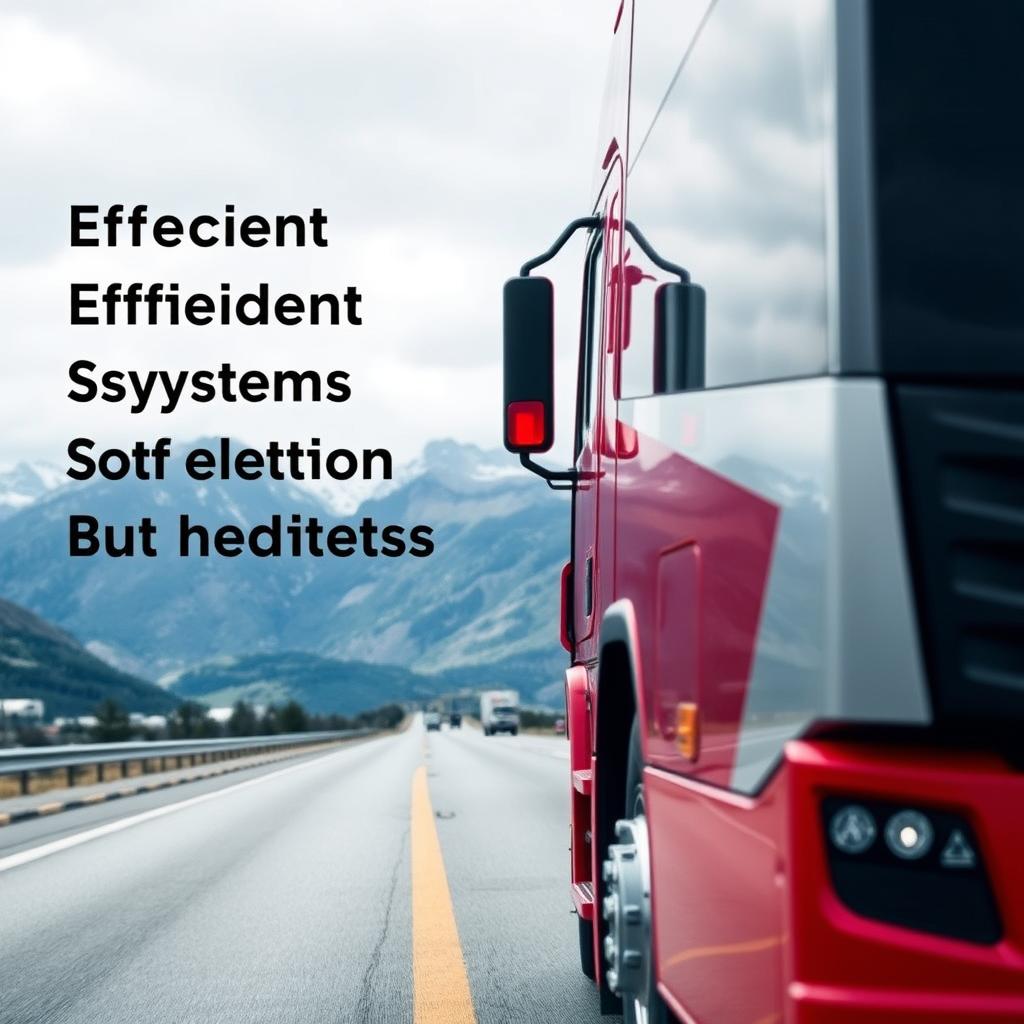Cost Management Strategies for Trucking Businesses
Managing costs in trucking businesses has become increasingly crucial in today’s competitive transportation industry. With fluctuating fuel prices, rising maintenance expenses, and increasing regulatory requirements, trucking company owners must implement effective cost management strategies to maintain profitability while delivering quality service. This comprehensive guide will explore proven methods to optimize expenses and boost your bottom line.
Understanding Your Operating Costs
Before implementing any cost-saving measures, it’s essential to have a clear understanding of your current operating expenses. Trucking businesses typically face several major cost categories:
- Fuel expenses
- Vehicle maintenance and repairs
- Driver wages and benefits
- Insurance and compliance costs
- Administrative expenses
- Equipment financing
According to the American Transportation Research Institute, the average cost per mile for trucking operations continues to rise year over year. Understanding these costs is the first step toward effective cost management and optimization.
Fuel Efficiency Optimization
Fuel costs represent one of the largest operating expenses for trucking companies. Implementing comprehensive fuel management strategies can lead to significant savings:
Vehicle Maintenance for Fuel Efficiency
- Regular tire pressure checks and maintenance
- Timely oil changes and air filter replacements
- Aerodynamic improvements and modifications
- Engine tune-ups and preventive maintenance
Driver Training and Behavior
Implement driver training programs focused on:
- Optimal speed management
- Proper acceleration and braking techniques
- Idle time reduction
- Route optimization
Fuel Purchase Strategy
- Establish relationships with preferred fuel vendors
- Utilize fuel cards with volume discounts
- Monitor and compare fuel prices along routes
- Implement fuel surcharge programs
Fleet Maintenance and Asset Management
Effective maintenance programs can significantly reduce unexpected breakdowns and costly repairs. Consider these strategies:
Preventive Maintenance Schedule
- Develop comprehensive maintenance schedules
- Track maintenance history for each vehicle
- Use fleet management software for maintenance tracking
- Train staff on basic maintenance procedures
Asset Lifecycle Management
- Calculate optimal replacement cycles
- Monitor vehicle performance metrics
- Evaluate repair vs. replacement decisions
- Consider lease vs. purchase options
Technology Implementation and Integration
Investing in technology can lead to long-term cost savings through improved efficiency and automation:
Fleet Management Systems
- GPS tracking and route optimization
- Real-time vehicle diagnostics
- Driver performance monitoring
- Electronic logging devices (ELDs)
Business Management Software
- Accounting and billing automation
- Document management systems
- Customer relationship management (CRM)
- Load planning and dispatch optimization
Human Resources and Driver Retention
Driver turnover can significantly impact your bottom line. Focus on these areas to maintain a stable workforce:
Recruitment and Training
- Develop comprehensive driver training programs
- Implement mentor systems for new drivers
- Create clear career advancement paths
- Offer competitive compensation packages
Driver Retention Strategies
- Regular performance reviews and feedback
- Safety incentive programs
- Health and wellness initiatives
- Work-life balance considerations
Insurance and Risk Management
Controlling insurance costs requires a multi-faceted approach:
Safety Programs
- Implement comprehensive safety training
- Regular safety meetings and updates
- Accident prevention strategies
- Safety technology adoption
Insurance Cost Management
- Regular policy reviews and comparisons
- Risk assessment and mitigation
- Claims management procedures
- Safety record documentation
Administrative Efficiency
Streamlining administrative processes can lead to significant cost savings:
Process Automation
- Digital documentation systems
- Automated billing and invoicing
- Electronic payment processing
- Paperless office initiatives
Vendor Management
- Regular vendor performance reviews
- Contract negotiation strategies
- Bulk purchasing agreements
- Preferred supplier relationships
Conclusion and Call to Action
Managing costs in trucking businesses requires a comprehensive approach that addresses all aspects of operations. By implementing these strategies, you can significantly improve your company’s efficiency and profitability while maintaining high service standards.
Ready to optimize your trucking business’s cost management strategy? Our team of industry experts is here to help you implement these solutions and develop a customized plan for your specific needs. Contact us today at +1 513 7884050 to schedule a consultation and learn how we can help you reduce costs while growing your business.
Remember, successful cost management is an ongoing process that requires regular monitoring and adjustment. Start implementing these strategies today to secure your company’s financial future and maintain a competitive edge in the trucking industry.
Don’t wait until rising costs impact your bottom line. Take action now and let us help you develop a comprehensive cost management strategy that works for your business. Call us today to get started on your path to improved profitability and operational efficiency.







